The electronic logbook law is another term for the ELD Mandate, which is a Transport Canada new elogs law requiring certain commercial motor vehicle drivers to use electronic log devices (ELDs or elogs). This new law on electronic logs shouldn’t be news to drivers, as it’s effective date is June 12, 2021, and all drivers subject to the elog law must already be using these devices.
ELD elogs have been recognized as an important tool not only by drivers and fleet managers, but also by the Transport Canada That’s because, unlike paper logs, electronic log devices seamlessly record driver and vehicle activity as it relates to hours of service (HOS) and records of duty status (RODS). But the seamless recording only occurs if the electronic log device is obtained by a reliable ELD supplier. Some ELDs are better than others, so the Transport Canada does its best to monitor ELD suppliers to ensure they’re compliant.
What is the Canadian new Elogs law?
As well as costing billions of dollars in paperwork expenses, a lack of road safety causes thousands of crashes annually due to driver fatigue. The Canadian truckers’ electronic logs law is a technical standard that aims to improve road safety significantly, with total benefits estimated to have a value of over $380 million, according to the Canada Gazette. On October 26, 2020, Transport Canada stated that FPI Innovations had received accreditation to certify ELDs.
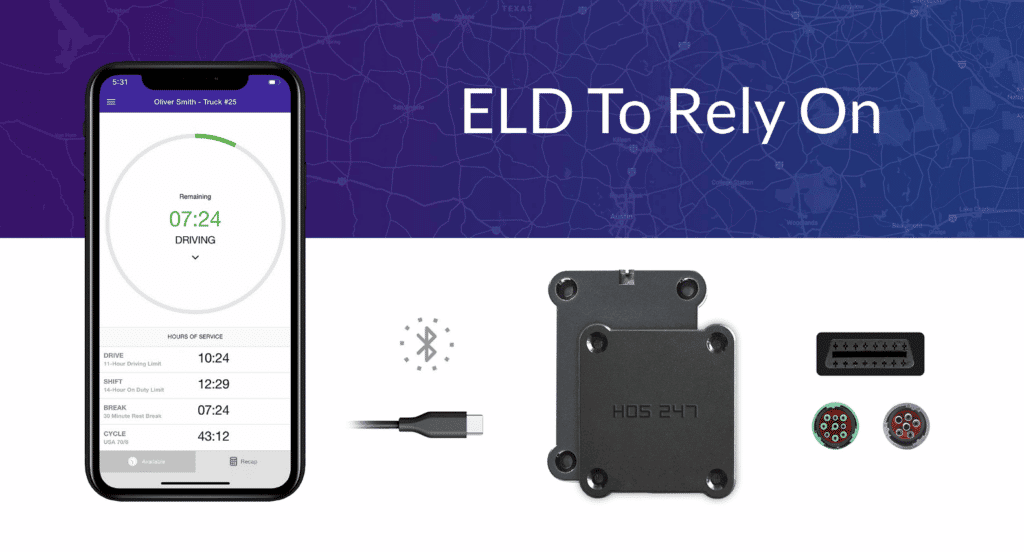
The Canadian ELD standards adopt many provisions of the US mandate, which went into effect in December 2017. The Canadian electronic logging device law rules help to prevent errors, standardize existing processes, and mitigate logbook tampering. It bears similarities to the regulations adopted by the Federal Motor Carrier Safety Administration (FMSCA).
The mandate’s core focus is to ensure ELD devices in Canada comply with specific technical standards and are certified by a third party. Commercial vehicles must capture Hours of Service using an ELD, rather than recording them in traditional paper logs. Drivers will have a safe working environment and effectively track and manage records of duty status (RODS).
The Canadian government had proposed to amend the Commercial Vehicles Drivers Hours of Service Regulations several years ago. The amendments included the Electronic Device Logging and Other Amendments. On June 13, 2019, Canada’s minister for transport announced that all bus and commercial truck drivers needed to use ELD systems to log their time at work. The federal government of Canada set the deadline for ELD compliance on June 12th 2021. Commercial truck drivers and bus drivers who fall under the federal jurisdiction must comply by this date.
The Canadian ELD Mandate does not contain a Grandfather Clause, as at its published date of 6/13/19, allowing for the use of an existing ELD beyond the compliance time of June 12, 2021.
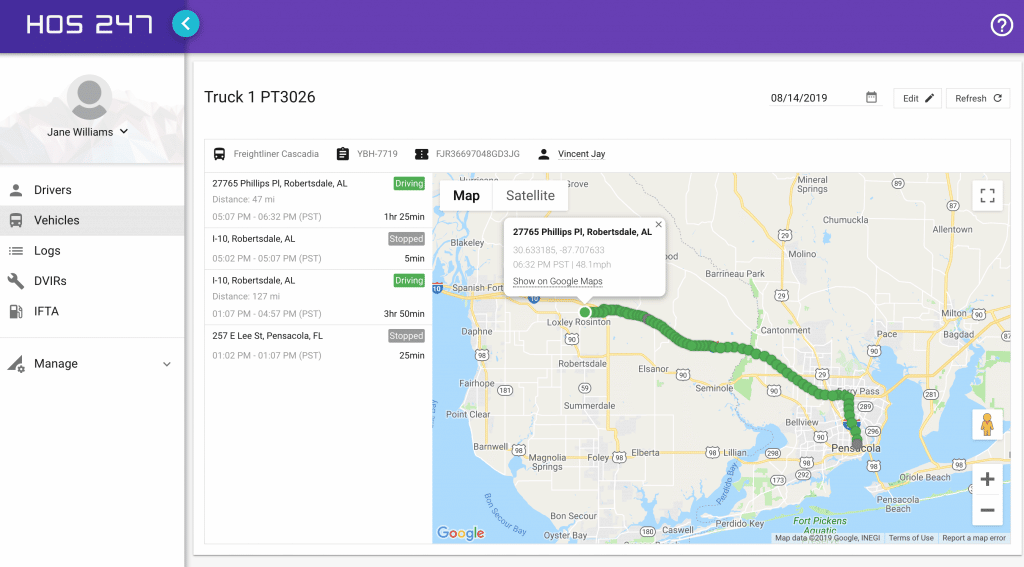
What is an ELD?
An ELD is a device that automatically records the driving time for bus and truck drivers. The ELD automatically updates the driver’s Hours of Service records and gives information about the vehicle’s engine hours. It records every movement and the number of miles a driver drives.
Several parts make up an ELD system. It includes a vehicle tracking device that can connect to the vehicle, a fleet management software, and a mobile app. The driver, dispatchers, and transport managers call all to see the data and plan the driver’s next trip based on the information. Transport Canada officers can also access the data when they need it. For instance, when inspecting vehicles and drivers during the roadside inspection.
Importantly for the success of the ELD mandate, devices can be installed within minutes by plugging in, logging on via a phone or tablet, and connecting to Bluetooth. Once a vehicle moves at a speed over five mph, status is switched to Driving, and it will start to capture times automatically.
Who Must Comply With the New Law on Electronic Logs?
The Canadian regulations mandate the use of electronic log books for commercial trucking businesses and drivers in Canada. Essentially, every driver and company that falls under federal jurisdiction must comply with the new rules for electronic logging devices. That includes over 150,000 commercial drivers. However, drivers who only work within one province may be exempt, as the mandate is applied to vehicles that are traveling across territories and provinces.
Having an electronic logging device installed in each vehicle in a fleet, and having an app and platform that helps managers monitor driver performance is recommended for a wide variety of reasons. The benefits of a HOS247 ELD will be discussed later in this article.
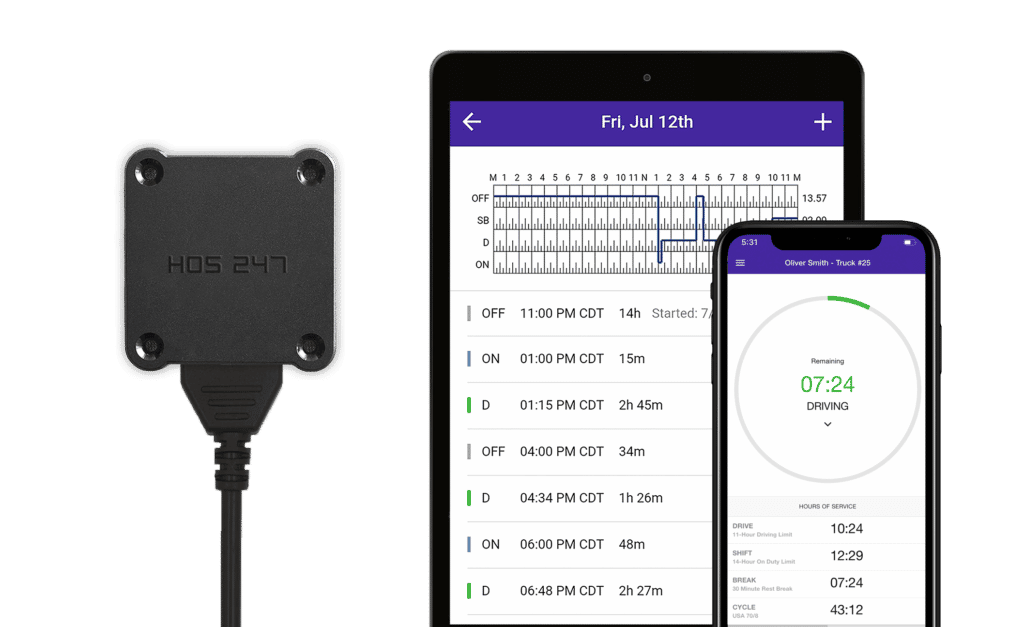
HOS247 Is an Industry Leader Providing ELD Devices, Software and Applications
While other ELD suppliers have come and gone, HOS247 has been an industry leader, providing electronic logging devices that are highly recommended by drivers and fleet managers. The benefits of choosing HOS247 as an ELD provider are many. Here are just a handful:
- Dedicated account manager to help with any questions fleet managers may have
- A multilingual customer support team available whenever they are needed, speaking English, Spanish, Polish and Russian
- Zero contracts
- Hassle-free 2-week returns
- Flexible options that include not only an ELD, but GPS tracking, IFTA mileage reporting and optional tablets; or the choice of an all-in-one solution that includes all of the above as well as dispatch
- Driver-friendly – very easy to install and use
- Prevents HOS violations
- Ability to both manage and edit elogs and DVIRs
- An intuitive fleet manager portal that automates FMCSA compliance, and increases fleet visibility and efficiency
- Ensures HOS and DOT compliance
- Automates IFTA state mileage calculations, which reduces human error and the risk of an audit
- Accurately tracks vehicles in real-time and helps plan for maintenance
- Streamlines vehicle diagnostics due to its fault code detection and real-time notifications
When Using an ELD, Does Any Physical Documentation Have to Be Kept in a CMV?
Yes. A driver who uses an electronic logging device must keep an ELD information packet onboard the CMV. That packet needs to contain these four items:
- A user manual that describes how to operate the electronic logging device
- An instruction sheet that describes the data transfer process and mechanisms the ELD supports, as well as instructions for transferring HOS records to authorized safety officials when required
- An instruction sheet that describes how to report malfunctions and what record keeping procedures to follow during a malfunction
- An eight-day supply of blank paper RODS graph grids that the driver can use to record their RODS and any other required information
The ELD information packet can be in electronic form.
For How Long Must Motor Carriers Keep Their ELD’s RODS Data?
The electronic logbook law requires motor carriers to retain their RODs data as well as their backup data for a period of at least six months. In addition, motor carriers should realize that their backup ELD data is required to be kept on a separate device from the device storing the original data. All ELD records must be kept in a way that protects their drivers’ privacy.
HOS247 has been providing electronic logbook solutions to large carriers and small owner-operators in US and Canada for years. All HOS247 ELDs are registered and compliant with Transport Canada policies. Also, HOS247 provides outstanding customer support to all clients to help them make the most out of their driver logs. Trusting HOS247 for all ELD solutions, whether domestic or foreign, will ensure that complying with changing regulations is as simple as a quick update. Failure to ensure compliance by the June 12, 2021 deadline could cause out-of-service orders and significant fines, so it is best to be prepared sooner than later.

I’ve co-founded, built and managed several transportation-related businesses. Now, I’m a founder and CEO of HOS247 – an AI Transportation Platform for trucking companies, freight brokers and other logistics operations. We are transitioning old-style operations to technology-advanced logistics entities and help them to grow their businesses. ELDs (electronic logging devices), fleet tracking and management 2.0 combined with AI-powered dispatch tools.











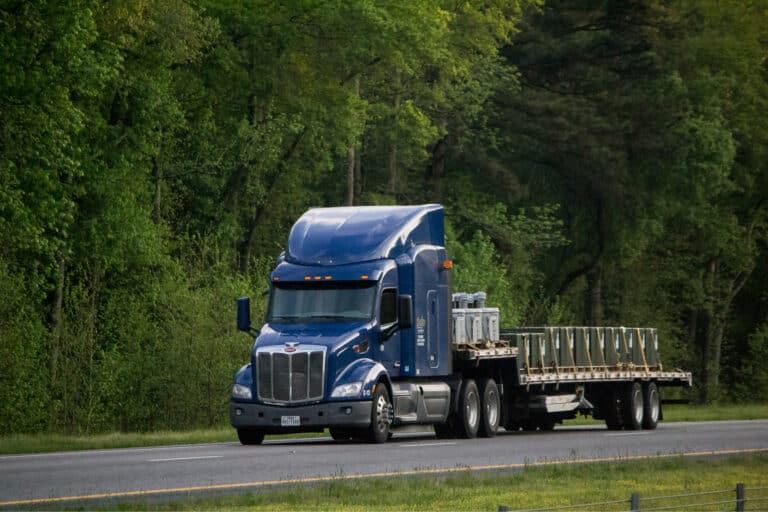
One of the best ways to increase your trucking business’s profitability is to implement a reliable GPS tracking solution. Having a real-time bird’s eye view of operations will yield countless benefits and improve nearly all of the activities involved in
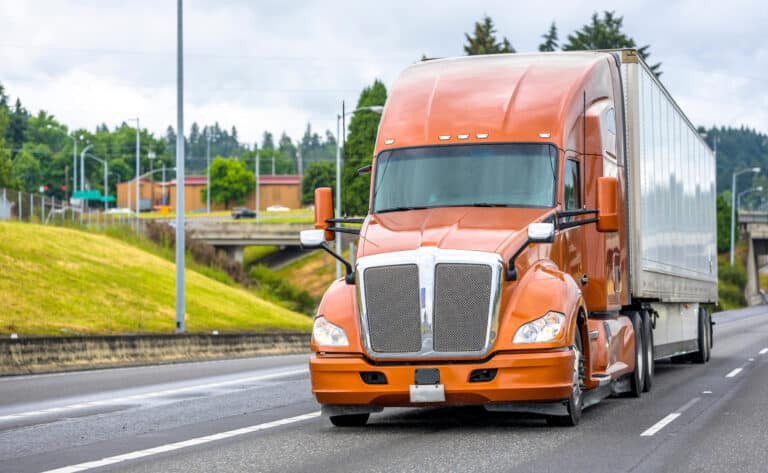
The ELD mandate will be fully enforced beginning January 1, 2023, and commercial motor vehicle drivers will be required to use electronic logs for their trucking operations. This legislation will affect around 157,500 commercial bus and truck drivers who keep
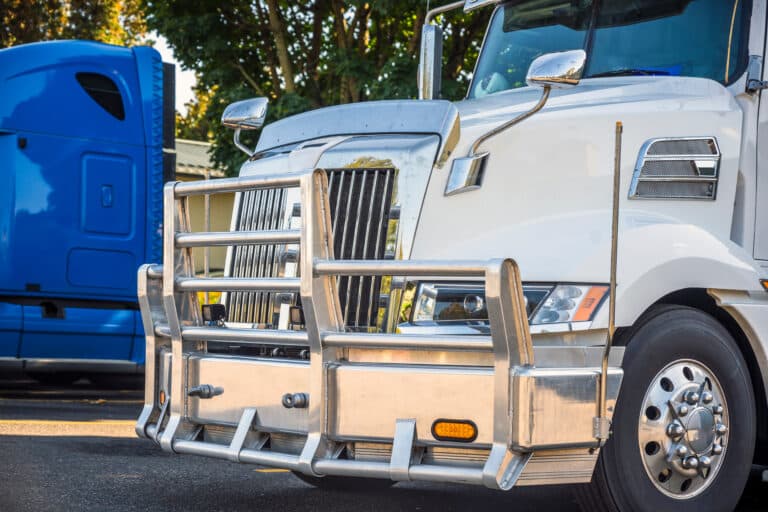
Elogs for truckers help businesses in the transportation and trucking sectors with HOS compliance and productivity. Carriers must use them to comply with the mandatory federal requirement for drivers to keep their RODS electronically; however, they can also be an